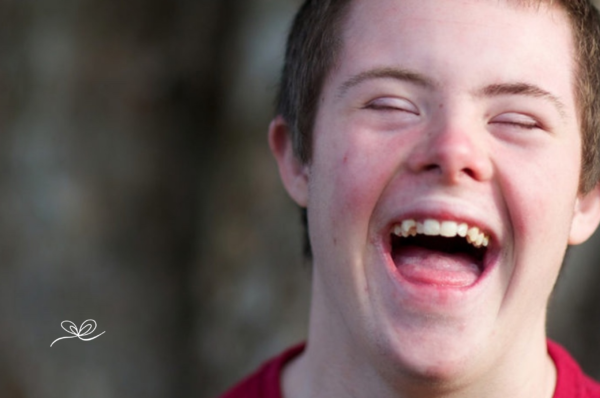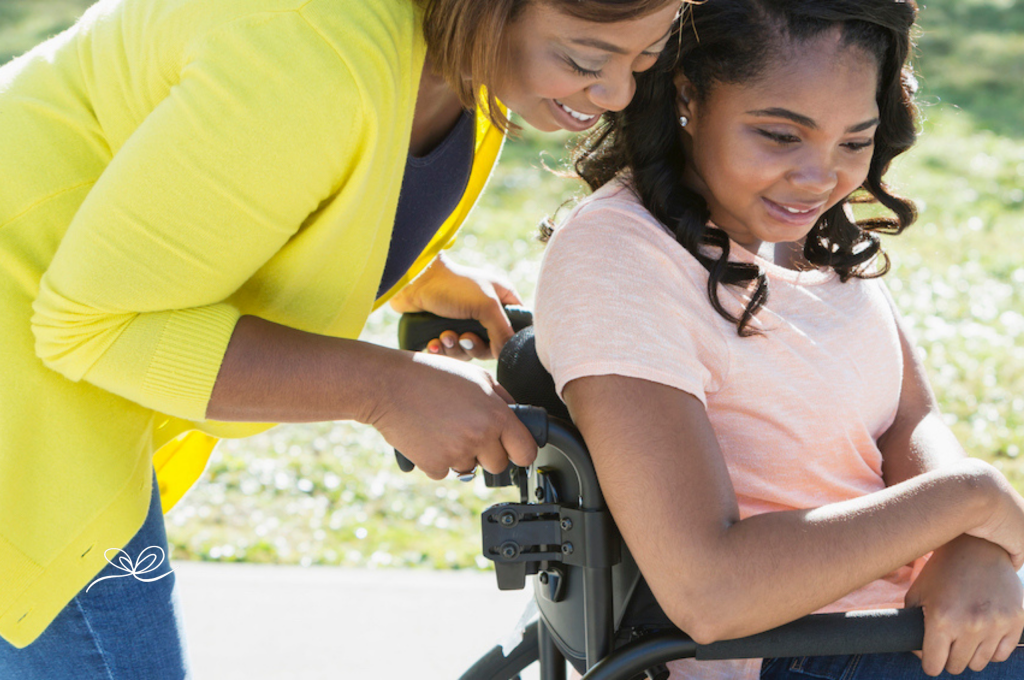“The talk”, that phrase alone gives all parents anxiety but for a parent of a child with special needs, this already tough topic becomes even tougher. “When do I talk to them?”, “How do I talk to them?”, “Do I even try to talk to them?” are all thoughts that are going through your mind and the answer is there is no universal answer.
beginning of puberty
Children with specific conditions may hit puberty early, late, or at the expected time but just because physically their body is ready does not mean mentally or emotionally they are ready for what’s to come. This is where it becomes individualized for every single family. I would say when you begin to notice slight differences in your child they may indicate puberty is coming, that’s the time to begin talking to them about the changes they may notice. It’s SO important that they understand what is happening and what they are feeling is normal. If your child responds with laughter or they get defensive let it go in that moment but bring it up again when the mood seems better and they seem more accepting.
Working in the field of occupational therapy “activities of daily living” are something we address. This includes toileting and all self-care tasks. I have worked with girls who had no clue what was happening when they got their period because the parent didn’t think they would understand, so when it initially happened the girls were scared and thought something was wrong. Working with the family since this carried over into the school setting, and figuring out what teaching method the child responds best to allow us to work together and figure out what worked best for each girl and the families were so thankful! They just needed a little guidance (:

try breaking down puberty
Breaking down puberty into segments instead of one big conversation is huge! It probably won’t be a one-time thing but rather ongoing lessons and conversations about what they may feel or experience and make sure they know questions are ok! Naturally, this seems like a taboo topic so kids most likely won’t ask questions if they feel awkward, and when talking about “private parts” they’re most likely going to feel awkward. Make sure they know questions are ok and encouraged. Allow time for an open conversation with no distractions and undivided attention.
If your child does not want to talk to you about it they may talk to an older sibling or trusted adult that they feel comfortable with and that’s perfectly ok as well!
A lot of times children receive information better than they express it so even if your child cannot verbalize it back to you they may still be understanding what your telling them and that will bring them comfort even if they cannot express that to you.
tip: use correct terms
When it comes to wording use the correct terms. This is something I would actually suggest for all parents having “the talk”. Using the proper names and terms helps paint a clearer picture and leaves less area for confusion. If your child needs something visual use pictures or a doll to discuss body parts and how they function.
physical development in girls
When it comes to puberty I would say one of the most drastic issues comes with girls getting their period. There are multiple ways to handle this when it comes to a child with special needs. First, consider the level of independence. If they are potty trained and independent at school then it will likely be expected that they also handle this independently at school. If your child receives OT bring this up! This is our job and it’s not a topic we will shy away from and they will likely know more about how your child is functioning at school and have ideas to help! I would suggest using social stories with pictures for the sequencing of tasks as well as modeling how to apply a pad at home before their actual period occurs. Take this time to talk about the importance of hygiene and wiping as well. Sequencing tasks is a huge aspect of this life event.
I have specifically worked on this with a few girls as OT goals after discussing with the parents what would happen in the school setting and going over social stories to ensure the girls knew this was normal, the special needs nurse and I made individual baskets that were kept in the bathroom cabinet (I would highly recommend this!) the baskets contained sanitary products, spare underwear, and a change of pants. The girls and parents knew and trusted us (another HUGE part) if assistance was needed we went in showed how to apply a pad, made sure good hygiene was used, hands were washed and after a couple of times the girls were independent!
For girls who are not potty trained and will not functionally be able to manage this on their own, I do know families who use medication to stop periods from happening as a way to ensure good hygiene. This would be a conversation with your child’s doctor, but it is an option parents don’t often know about.
in conclusion….
It’s scary to think about but in reality, when it’s broken down into manageable parts your child may surprise you with what they can handle.
When addressing “the talk” with your child with special needs don’t let the topic itself scare you! Its normal and these kids can understand and handle it. They need to know their body and how it works!
pin to pinterest:
event this saturday:

Check out the Facebook Event!
If you can’t make it, but would still like to celebrate with us you can make a donation in honor of our 2nd anniversary here.





